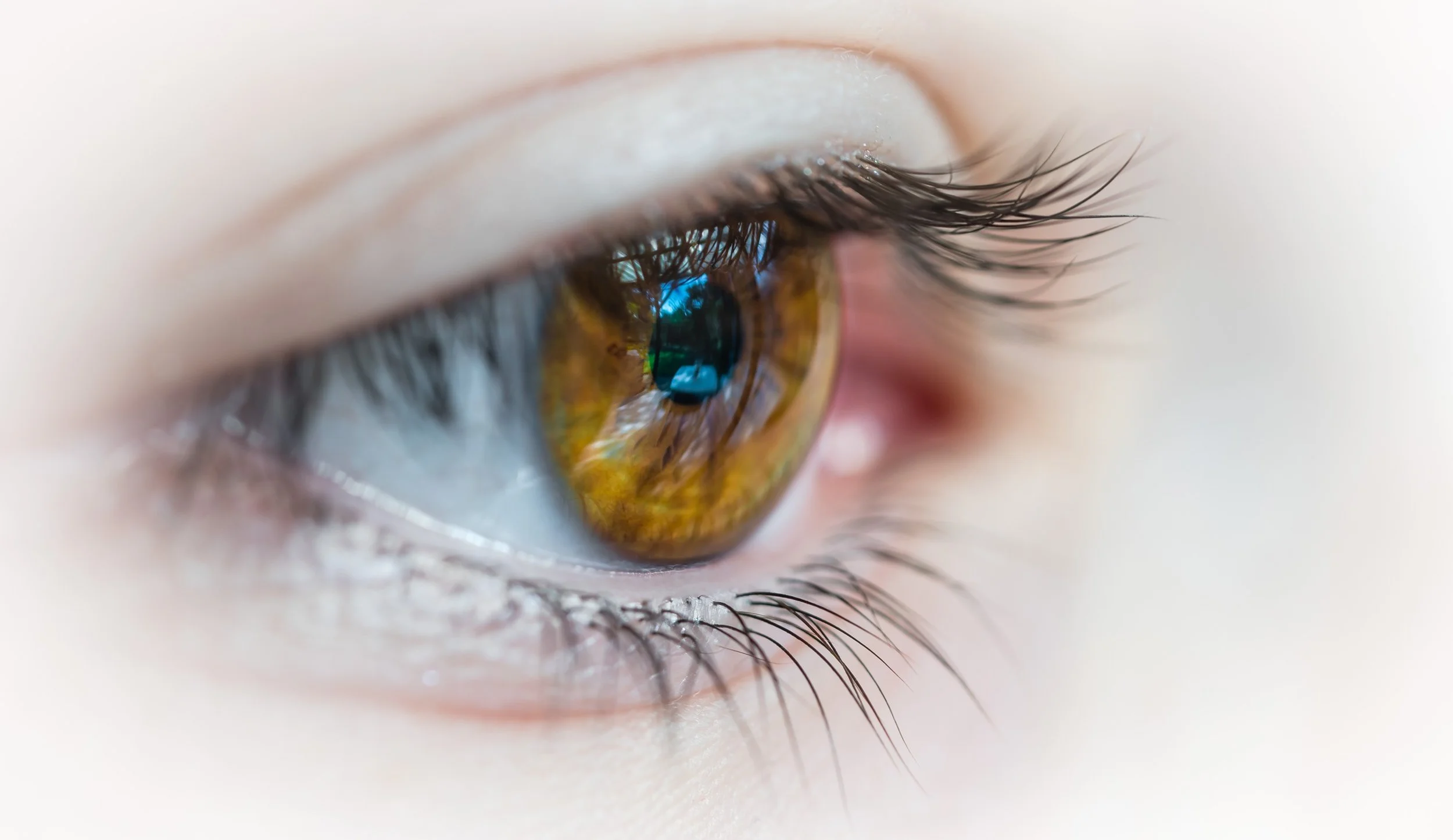Eye damage can come from looking directly at a solar eclipse, eating a nutritionally deficient diet, staring at a computer screen for hours, or any number of other things. Damaged eyes aren't simply corrected by wearing glasses. In addition to near- or far-sightedness, eye damage can look like poor night-vision, photosensitivity, stigmatism, cataracts, crossed eyes, eye floaters, glaucomas, detached retinas, corneal ulcers, xerophthalmia, uveitis, and more! Not a fun list! But there is good news! There are things that you can eat to support your eyes nutritionally. Today I will share with you the majornutrients of the eye, and how you can make sure you are getting enough of them in your diet.
Fair warning: this article gets a little sciency... if you are getting overwhelmed, skip to the bottom to see my recommendations.
Vitamins for the Eyes
Vitamin A: This vitamin is probably most connected to good eye health. Most of us were taught in school that eating carrots was good for our eyes because of the vitamin A in them. Actually, carrots contain vitamin A in the form of carotene, which must be converted into a more usable form of vitamin A through metabolic processes before our body can use it.
Cod liver oil, high vitamin butter oil, and liver are actually our richest sources of bio-available vitamin A. We can also get vitamin A from egg yolks of pastured chickens, grass-fed butter, green leafy vegetables, and some yellow and orange vegetables like sweet potatoes and carrots (Lee, R, pg. 21-22).
Vitamin F: Vitamin F (also known as B2) is very important in eye health. When vitamin F levels are restored in a person's body, improvement in certain eye problems have been observed, including decreased photosensitivity, an improvement in long-distance focus, and (when combined with A and C) a dissolving of cataracts. Vitamin F (working alongside vitamin E) prevents and reverses calcium deposits in the eye. This vitamin can be found in large amounts in oatmeal and rye (Lee, R, pg. 31-32).
Vitamin G: This vitamin can also be classified as a B vitamin. However, there are several factors that make it distinct from other vitamins in the B family. Vitamin G is protective to the eyes, and a deficiency can lead to cataracts. This vitamin can be found in liver and other organs, as well as sprouted barley (Lee, R, pg. 33-34).
Minerals for the Eyes
Calcium": Calcium is important in eye health, but having too much or too little calcium is not as important as the balance of where the calcium is. The vitamins B, D, C, E, F and G all play a role in maintaining calcium balance in the tissues, bones and bloodstream. An imbalance of these vitamins can cause an imbalance of calcium, which could lead to eye damage or dysfunction (Lee, R. pg. 37-40). We can find calcium in whole raw milk, butter, yogurt, and bone broth (but only if you don't have a leaky gut!) (source).
Selenium: Selenium is an important trace mineral that is found primarily in brain and nervous tissue. If eating brains is not your thing, it is also found in high amounts in bilberry fruit, which can be purchased as an encapsulated dried berry powder. It was reportedly used by WWII pilots to improve their night vision (Pedersen, M. pg. 46-47).
Zinc: Zinc's main role is bringing vitamin A to the retina to produce a protective pigment (melanin). A deficiency in zinc leads to poor night vision, cataracts, and other vision impairments. We can get zinc from oysters, red meat, seafood, chicken, eggs, wheat germ, and some legumes (source). Zinc is also found in high amounts in bilberry fruit (Pedersen, M. pg. 46-47).
So, how can we protect and heal our eyes?
Eat organ meats (especially liver), butter, and egg yolks regularly.
Take fermented cod liver oil daily (even better when combined with high vitamin butter oil).
Eat a mixture of green, orange and yellow vegetables, as high quality as you can find.
Consider taking a bilberry fruit supplement.
Consider supplementing real-food supplements if there are significant deficiencies present.*
Your eyes are important! You only have two of them, and they are worth taking care of! Even if you already have problems, don't give up! Many eye conditions may be reversed partially or completely. Remember, the body wants to be healthy... it's often simply missing the building blocks and tools to heal. Provide it with those tools, add some time, and see what your body can do!
*Many supplements are synthetically manufactured, or are from ingredients that have very little bioavailable nutrition in them. When I perceive that food is not enough to correct a severe nutritional deficiency, I recommend a brand that uses real, bio-dynamically raised animal and plants in an absorbable form. This brand is only available through health care providers. If you feel that you need supplements, and would like guidance, please schedule an appointment with me.
References:
Lee, Royal. Vitamin News. San Diego: The International Foundation for Nutrition and Health. 2006. Various pages, cited in the text.
Pedersen, Mark. Nutritional Herbology: A Reference Guide to Herbs. Warsaw: Whitman Publications. 2015.
This post contains affiliate links. Your trust is important to me, and I only recommend products that I trust.

